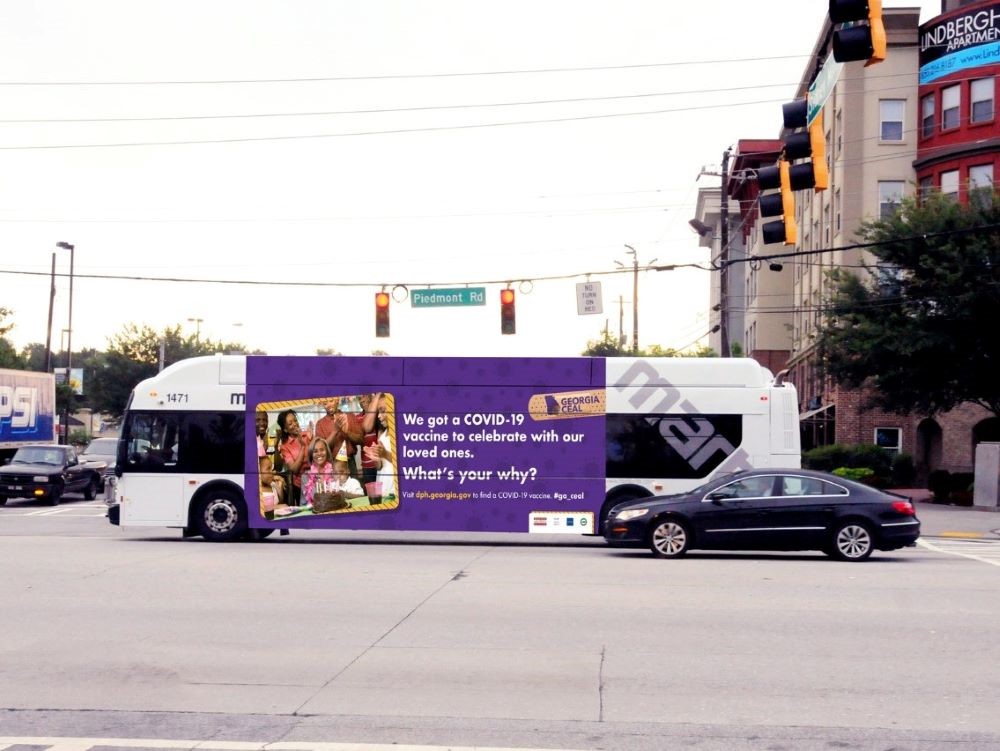‘What’s Your Why?’ Georgia CEAL Ad Campaign to Reduce COVID-19 Vaccine Hesitancy

According to the September 8, 2021, Georgia Department of Public Health COVID-19 Vaccine Dashboard, only 44% of residents are fully vaccinated. Georgia CEAL has launched an advertising campaign to address vaccine hesitancy, one of the factors contributing to the low vaccination rate especially in medically underserved and vulnerable populations.
For outreach and engagement efforts in ethnic and racial minority communities disproportionately affected by the pandemic, the National Institutes of Health (NIH) created the Community Engagement Alliance (CEAL) Against COVID-19 Disparities initiative. Georgia CEAL is leveraging Georgia CTSA’s strong community partnerships and long-standing community-engaged research efforts.
“Georgia CEAL represents community, research, clinical and public health leaders working together towards effective COVID-19 communication, vaccine confidence, and uptake, particularly for those disproportionately impacted. Over 49,000 Georgians have been vaccinated through these efforts. Our mission continues and contributes to the collective efforts of leaders, state and nationwide,” says Georgia CEAL Principal Investigator Tabia Henry Akintobi, PhD, MPH.
Dr. Akintobi is Professor of Community Health and Preventive Medicine, Associate Dean of Community Engagement, and Director of the Prevention Research Center at Morehouse School of Medicine; and Georgia CTSA Community Engagement Program Director. She is leading the Georgia CEAL research team at Morehouse. CEAL research teams across the U.S. share a goal of quickly launching outreach efforts to help reduce the impact of COVID-19 on the most vulnerable populations and to evaluate these efforts through community-engaged research.
In August 2021, Georgia CEAL began an advertising campaign through OutFront Media. The ads appearing in the form of billboards, bus shelters, and bus ‘sidings’ are situated across Metro-Atlanta, specifically in DeKalb, Fulton, and Henry counties. Additionally, individuals browsing websites on their mobile devices in and around these counties will encounter Georgia CEAL pop-up ads. These ads aim to increase vaccine uptake among African American and LatinX populations by featuring messages geared to persuade the vaccine hesitant individuals to get vaccinated. The messages include “We got a COVID-19 vaccine to spend time with our loved ones.” “We got a COVID-19 vaccine to make memories.” “We got a COVID-19 vaccine to celebrate with our loved ones. What’s your why?” and “I got a COVID-19 vaccine because ______.” The ads feature the Georgia CEAL hashtag, #ga_ceal. For the media campaign, Georgia CEAL researched zip codes in DeKalb, Fulton, and Henry counties with the lowest vaccination rates and strategically placed the advertisements in those communities.
Georgia CEAL was one of the original 11 CEAL teams selected by the NIH. The NIH Community Engagement Alliance (CEAL) Against COVID-19 Disparities has expanded to include a total of 21 state teams. To learn more, visit the NIH Community Engagement Alliance (CEAL) website.
Georgia CTSA’s Community Engagement (CE) program is a core component of a collaborative effort between Emory University, Morehouse School of Medicine, Georgia Institute of Technology (Georgia Tech), and University of Georgia (UGA). The program improves the way biomedical research is conducted and disseminated throughout Georgia and across the country. It works to unite existing academic-community research partnerships, facilitate community input into university research, and increase health research in community settings that is both responsive and relevant to the health needs of the community.
The Georgia CTSA is a statewide partnership between Emory, MSM, Georgia Tech, and UGA and is one of over 60 in a national consortium striving to improve the way biomedical research is conducted across the country. The consortium, funded through the National Center for Advancing Translational Sciences (NCATS) and the National Institutes of Health's Clinical and Translational Science Awards, shares a common vision to translate laboratory discoveries into treatments for patients, engage communities in clinical research efforts, and train the next generation of clinical investigators.